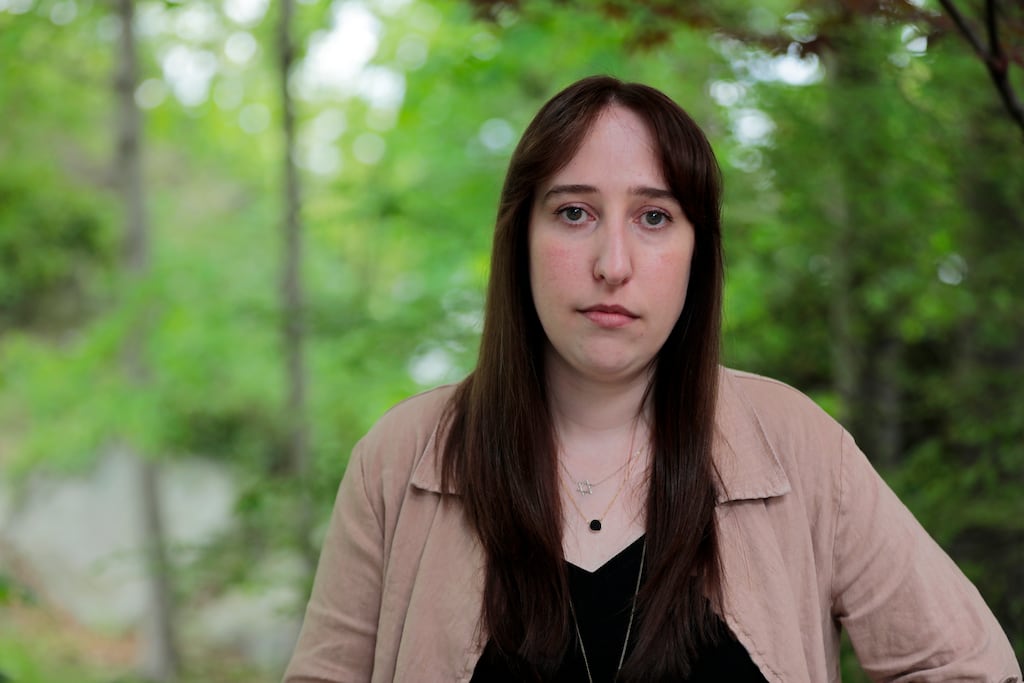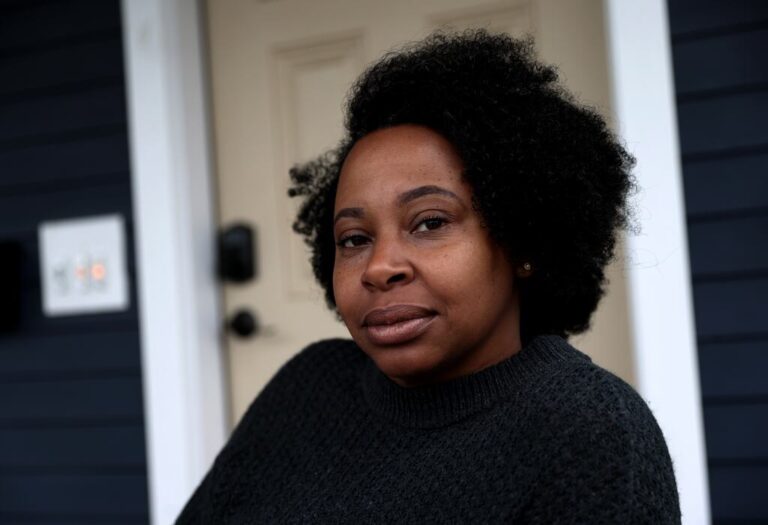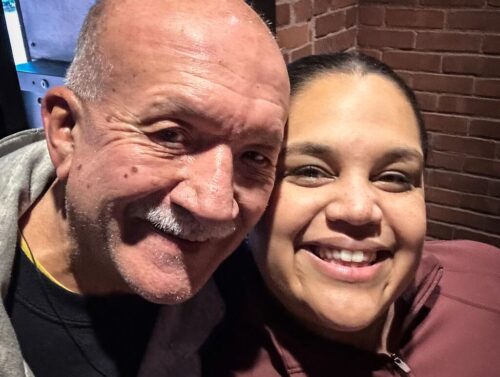Two Black sisters say classmates repeatedly used racial slurs toward them at school. A new mom claims her disability accommodations were abruptly changed, causing her to fall behind in graduate school. A METCO student transferred out of his suburban high school after being called the n-word.
These cases are among the 12,000 civil rights complaints that were pending at the US Department of Education when President Trump took office in January. They were filed by New England parents and students who said they were discriminated against on the basis of race, sex, and disability.
But after the Trump administration slashed the Education Department in half, closed civil rights offices, and shifted the agency’s focus to reflect the president’s priorities — including his opposition to diversity, equity, and inclusion policies — families fear their cases won‘t be taken seriously.
“If I have to depend on the Trump administration to handle something about civil rights, I can forget about it,“ said Nita Holder, a Boston mother who has a pending complaint alleging her son was repeatedly bullied at a middle school in Melrose because he is Black.
Trump can’t unilaterally abolish the US Department of Education. But mass layoffs can get him close.
Some of the pending cases before the Office for Civil Rights date back to 2007, but the vast majority were filed during the Biden administration, according to a Globe review of Education Department data.
There were 600 open investigations in New England when Trump took office, roughly half of which are in Massachusetts.
Then Trump signed an executive order in March aimed at eventually abolishing the Education Department, cut half of the agency’s 4,300 workers, and shut down the Boston civil rights office. Five offices remain, none of which are in the Northeast.
Trump has sought to reposition the Education Department to target schools with DEI programs. The department has announced numerous new investigations into schools that allow transgender athletes to play girls’ sports, colleges accused of failing to address antisemitism, and schools that teach about white privilege.
Those changing priorities have left Ariel Shepetovskiy, a former Education Department attorney who was among those placed on leave as part of the agency’s job cuts, worried about what the administration will do with what remains of the organization.
Shepetovskiy, who lives in Malden, worked remotely for the agency’s office in Cleveland. She expects to be fired after the leave expires in June.
“My biggest fear is that the Trump administration is going to use [Office for Civil Rights] to hurt kids, to hurt schools that are just trying to do the right thing, and to dismantle civil rights,” Shepetovskiy said.
The Trump administration also launched a new “End DEI” online portal that allows the public to report “illegal discriminatory practices,” reflecting the agency’s shifting priorities.

Pat Greenhouse/Globe Staff
The Education Department did not answer Globe questions about how many complaints have been opened since Trump took office or how many civil rights investigators remain employed. While the website that tracks complaints is no longer updating, spokesperson Julie Hartman said more than 72 complaints have been resolved since Trump took office.
Hartman didn’t provide the outcomes of those cases.
Regarding concerns from families that their open cases won‘t be taken seriously, Hartman said the department is “committed to enforcing federal anti-discrimination law.”
Shepetovskiy said she and other lawyers for the civil rights office who lost their jobs were forbidden from contacting families whose complaints were under investigation, a directive that left her worried about what will happen to them.
“Every single complaint is someone who has experienced something awful and who is asking for help, and we’re the people who are supposed to help them,” Shepetovskiy said.
Sixteen-year-old Kamora Dabney, who is Black, said she was studying in her school’s library in Millbury in late 2023 when a white student showed her a note with the n-word scrawled on it. The n-word pass, a running joke at the school, gave white students “permission” to use the derogatory term when they held it.
Dabney tore up the paper and threw the pieces at her classmate. She was written up by the librarian, her complaint says, and the infraction in her file “entirely omitted the racial nature of the incident.”
That moment was part of a pattern of racism Dabney and her younger sister, Melody Dabney, 14, say they endured at Millbury Memorial Junior/Senior High School, where fewer than 5 percent of students are Black, according to their complaint, filed in September.
“School is supposed to feel like a safe space,” Kamora Dabney said. “Leaving my house to go to school, I don‘t feel that safe.”
Their mother, Trusha Vilvar, said school staff ignored her numerous complaints regarding racism, including students calling the sisters “monkey” and a Snapchat message telling them to go back to the “mother land.”
“Every time the kids go to report it, it’s not taken seriously,” Vilvar said. “If the girls don‘t have four to five witnesses that heard, they’re not believed.”
The Boston civil rights office opened an investigation in November, but Mirian Albert, the family’s lawyer, has heard nothing since the office was closed.
In its own internal investigation, the district found the school should have opened a civil rights investigation into the sisters’ allegations, but did not substantiate “consistent” use of racial slurs, confirming two instances in 2022 and 2023.
Superintendent Gregory Myers said Millbury denies the claims in the sisters’ federal complaint. He said the school held a training for all staff on opening civil rights investigations.
If Trump moves to eliminate the Education Department, Project 2025 tells what to expect next
Holder, the Boston mother, sent her 13-year-old son to Melrose Veterans Memorial Middle School through the METCO program in 2023 and 2024. After repeated instances of students calling him the n-word and two physical attacks, she pulled him out of the school, according to her federal complaint.
Last year, Melrose schools pledged an outside investigator would look into Holder’s allegations. That investigation is ongoing, Melrose Superintendent Adam Deleidi said.
John Summers, a Cambridge father who filed a complaint in March 2024, argues the system wasn’t working well even before the cuts. “It’s not going to get any better now,” he said.
Summers is seeking the ability to track the bus for his son, Misha, 13, who has autism and is nonverbal, on his way to school, something the Cambridge district offers for buses for students without disabilities.
The Office for Civil Rights opened an investigation on May 1 of last year. After that, he heard nothing.
“It’s been more than a year, on a pretty simple, straightforward civil rights complaint,” he said. (Cambridge Public Schools said they would roll out a tracker for special needs families this summer.)
Julie Hammond, a doctoral student at the University of Massachusetts Amherst, said she was “furious” about the cuts to the Education Department, which had been investigating her complaint over a sudden policy change that limited the length of disability extensions she could receive on assignments to one to three days, causing her to withdraw from classes.
Hammond had a registered disability accommodation for depression and anxiety, and was seeking another for complications from an emergency C-section. The Boston civil rights office opened an investigation into her case on Jan. 15. She has not heard anything since.
“This is the way that we as a nation hold institutions accountable for civil rights,” said Hammond, who also works at UMass in the disability services office.
UMass declined to comment on her complaint, but a spokesperson said the new extension policy was meant to impose a minimum duration, not a cap.
Iván Espinoza-Madrigal, executive director of the Boston group Lawyers for Civil Rights that represents Vilvar and Holder, said he’s concerned the changes mean school districts won’t be held accountable for discrimination.
“We can’t trust schools to police themselves,” he said.


Comment count: